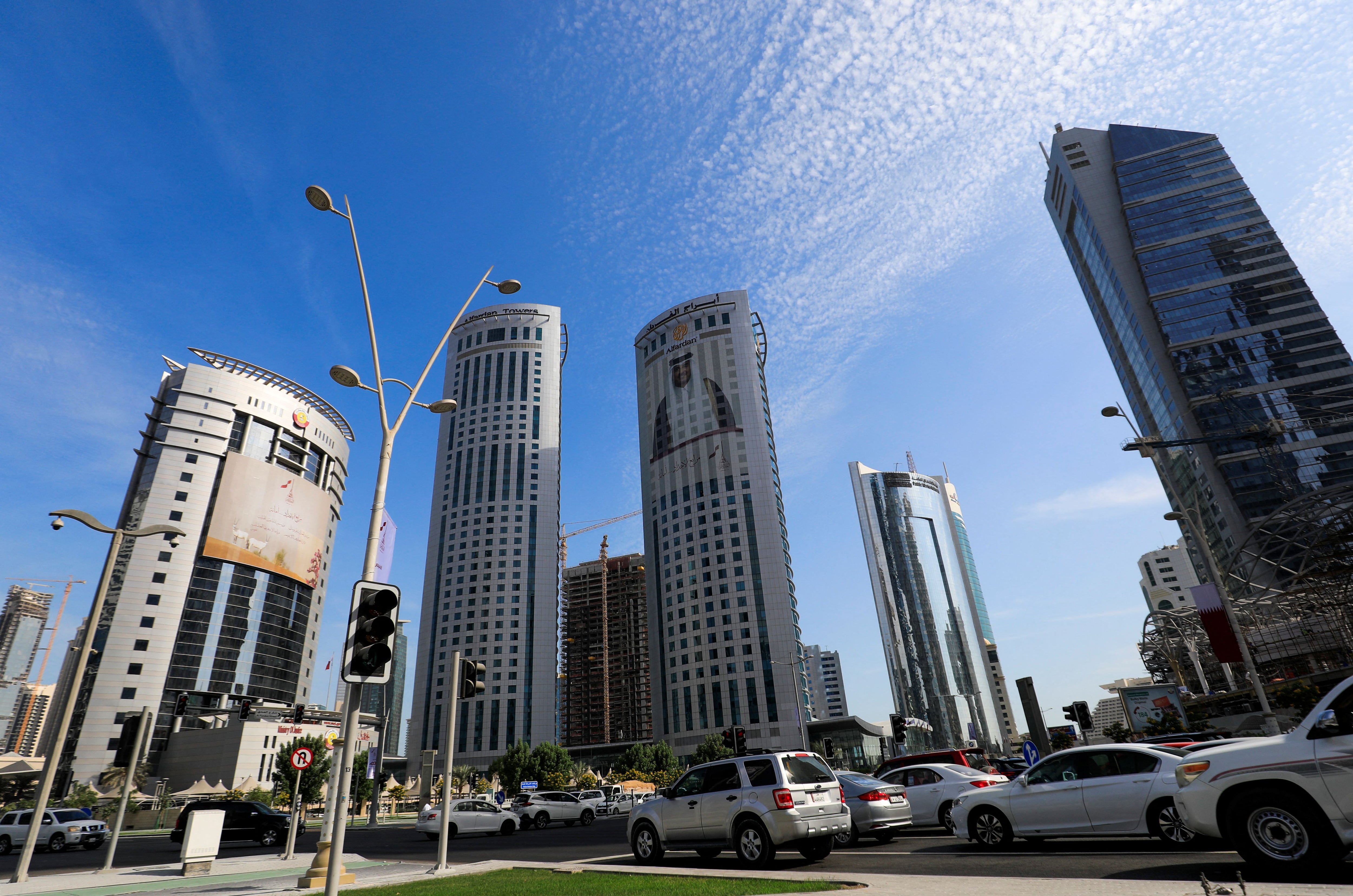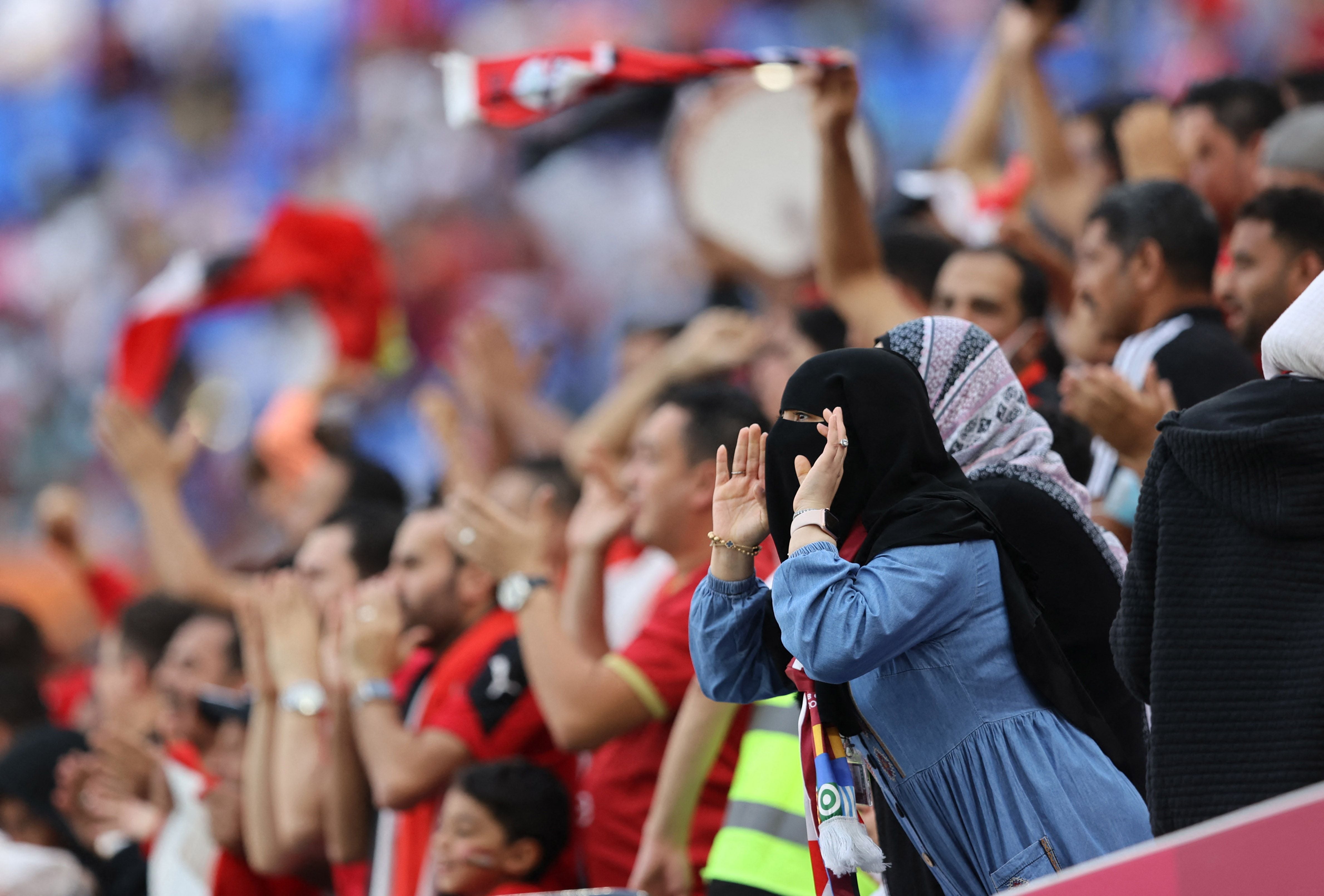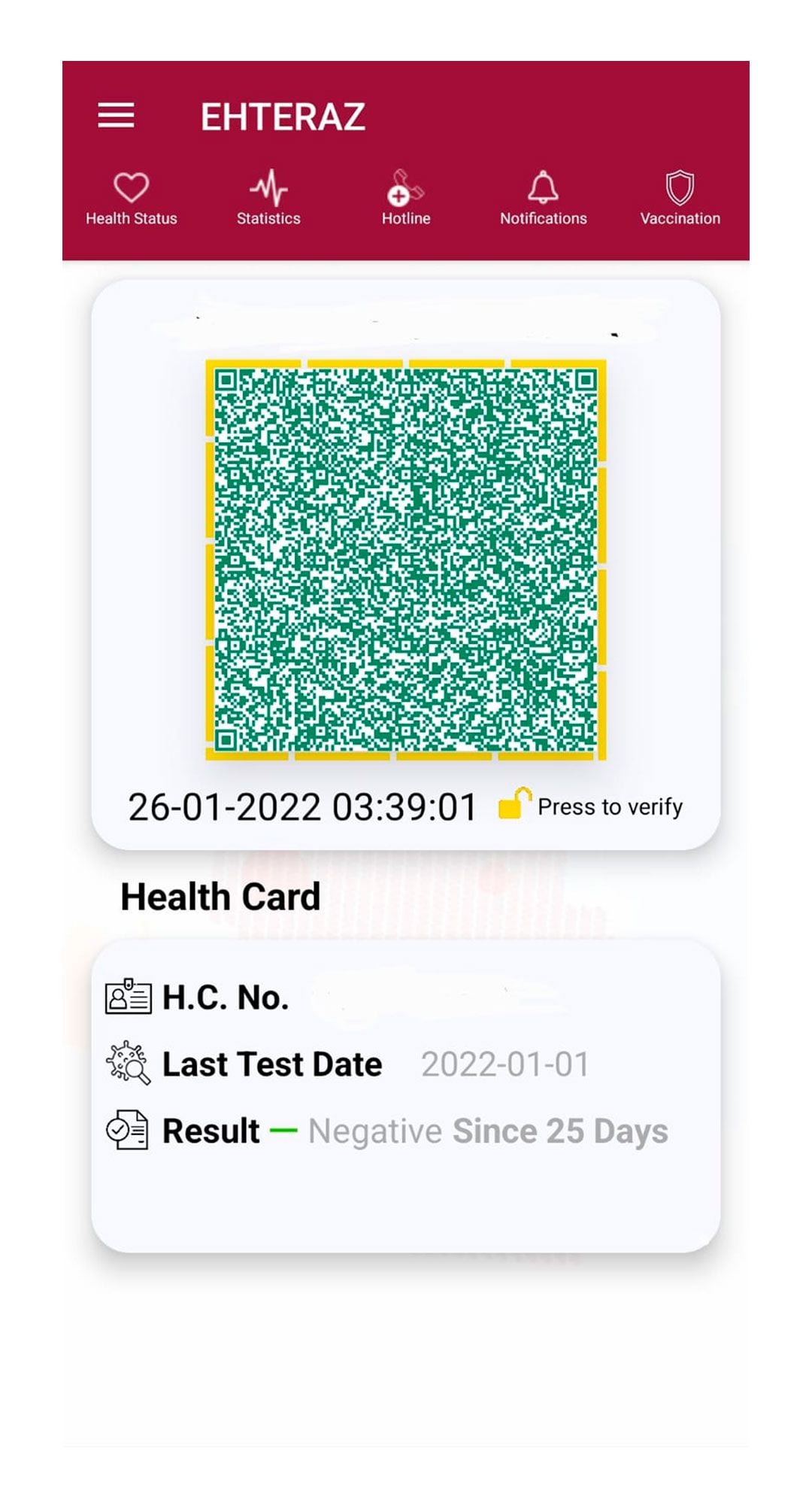
It is less and less until the start of the 2022 World Cup in Qatar and in every ticketing process launched by FIFA, millions of people sign up for a ticket to be able to encourage their selection at the most important event on the planet. This edition, which will begin on November 21, will be historic because it is the first to be held in an Arab nation, whose customs and ways of life are different from those in the west. Therefore, those who wish to travel to the Middle East should keep in mind the following basic aspects.
Infobae contacted Belén Hermina, an Argentinian who has been living in Qatar for five years and who works for a recruitment agency, who gave details on how fans who plan to support her nation in the World Cup should be handled. In this way, it was possible to draw up a complete guide for amateurs.
This card will be essential for fans. It will be necessary to present it together with the entrance to the stadium controls to be able to enter without any problems. But it will also be the access tool to the country: all fans will need to have an approved Hay'ya Card (Fan ID) card application number to enter Qatar.
In addition, it provides easy access to public transport during as it will include free bus and metro rides on the days of the event. The first test that took place during the FIFA Arab Cup that had Fan ID as an optional was considered a success and became a strong necessity for the next World Cup.
A statement was published on the official FIFA website confirming the need to process the document in question. “Once they have paid their tickets, fans will be able to book the accommodation and request their Hay'ya card, which will also serve as a permit to enter Qatar for international fans travelling to the tournament. All spectators, regardless of whether they are residents of Qatar or foreigners, will need the Hay'ya card along with the match ticket to access the stadium,” the letter explained.
Fans must request it once they have paid for their tickets to the match and have their ticket request number by email. Applications can be submitted online through the Host Country Entry Portal website (Fac21.qa).
• Hosting and language
The official language of Qatar is Arabic, however, about 80 per cent of the population is foreigners, which is why several languages are spoken, especially in Doha, its capital. That is why those who travel will be able to communicate with English: “Not everyone speaks it perfectly, but everyone makes themselves understood,” Belén explained.
Arab culture is famous for its hospitality. Thus, Qataris tend to be kind to tourists, to the point that they may even invite them to eat in their homes to enjoy a chat in which they will try to tell them what their culture and religion are like. Precisely because of this, the government launched the Host a Fan program, in which anyone can sign up to be able to stay in a Qatari's home during the World Cup for free.
As for lodging, each fan will look for the place that best suits their economic power, since the variety is very wide. But the thing to keep in mind is that the ideal is to base in the capital, as Belén recommends: “The best thing is Doha, then there is Lusail, which is the city they set up for the World Cup that is close to the stadiums, but everything is very close. The country is small and most of the buildings are in Doha.”

• How to move from one place to another
One of the big doubts that always circulates in the heads of fans traveling to the World Cups is how to travel between the venues to see their team. In this Cup this concern will not exist, since Qatar, unlike Russia or Brazil (last two hosts), is a very small country that ranks 156th in the ranking of countries according to its area.
In addition, seven of the eight stadiums are directly connected by a metro network, meaning that you can travel from one venue to another by train. The only one left out of this route is the Al Bayt Stadium, in the municipality of Jor, with capacity for 60 thousand people, which can be reached by public buses or even water taxis. Those with tickets and the Hay'ya Card will be able to use the metro free of charge on match days.
If you use public transport in Qatar and you do not have tickets to a match, you will need to purchase a card worth 10 riyal (USD 2.67) which can be charged by machines located at the stations and stops or through a mobile app Ehteraz using a credit or debit card. This app also has a query system that lets you know what transport or connection you need to take to get to a destination faster. The metro ticket costs 2 riyals (USD 0.53) and includes the combination with buses, if necessary.
Obviously, the use of Uber is also very popular, since although the distances are short, “there is no typical block or street like in South America. There are neighborhoods where you can walk and walk, but to get there you need to take a highway or one of the huge avenues there are.”
Therefore, it is not unreasonable to opt for a car rental either. Although this is the most expensive option, those who are inclined to it should know that cities in Qatar have extensive camera monitoring control to detect possible traffic violations: “They should be careful with speeding because there are many cameras and at traffic lights they take pictures of you. Also at most traffic lights there are dedicated lanes to turn left, so if you use that one to go straight or the follow lane is used to turn left, you will be fined. And also if you stop the car on the pedestrian path, the cameras record everything right away,” warns Belén.
• Exchange rate
For those who are concerned about the exchange rate, there are not too many drawbacks in Qatar. Anywhere such as restaurants and supermarkets, US dollars are accepted, as well as debit and credit cards. Although it is best to deal with the Riyal, the local currency, to avoid being harmed by the exchange rate. In turn, at any ATM both currencies are expended.

• Telecommunications
Traditional applications such as Whatsapp work perfectly for exchanging messages, however, when it comes to making video calls, they tend to be interrupted constantly. The ideal is to download a VPN from the Playstore on your mobile phone and modify the location, choosing anything other than Qatar, before making a call.
• Unmissable places and gastronomic offer
While football will be the main attraction during the World Cup, fans will also take advantage of their stay in Qatar for sightseeing. Since Doha will be the city where the vast majority of those who travel to the Arab country will stay, it is obvious to talk about the huge buildings that were built there in recent years, such as the Aspire Tower, the Palm Tower or the National Library.
Beyond these architectural works, there are also less modern places that are worth visiting, such as the Souq Waqif, an old market that has withstood the changes of the city and retained its style. “It is very similar to the Grand Bazaar in Istanbul (Turkey). It was the original market in Qatar that was preserved and maintained. There you can get souvenirs and things to bargain. You have to negotiate because if they see you as a tourist face they will raise the price. They sell spices, chocolates, yiya, which is what they smoke, clothes, everything. There are also many places to eat that are cheap and close to the Corniche, which is like the waterfront of Doha. As a point to go look and take pictures it is really nice”, recommends Belén. “Then you have the most modern part, West Bay, with the colorful buildings and then there are a few more neighborhoods, but further away.”
In recent years, Qatar has tried to become one of the largest tourist centers in the world, which is why it has developed a wide variety of gastronomic offerings. This is how those who wish can enjoy local food, but they will also easily find more common options from the west, whether in restaurants, supermarkets or in food trucks. The latter are the cheapest option, where you can get a shawarma for less than USD 4.
There will be tourists who will choose something even cheaper and for that they can opt for hypermarket chains such as Carrefour or Lulu, the most accessible. “A pack of noodles will cost you 5 riyals, (USD 0.91), more or less. But there is everything, if you want to eat organic pasta, you might get $10 a package. But there is a lot of variety because there is food from all over the world.”

• How to assemble the suitcase and at what time to set the alarm clock
For the first time in history, FIFA changed the calendar to play the World Cup between November 21 and December 18, in order to avoid Qatar's summer and, consequently, high temperatures. For this reason, fans will not suffer from the heat of the desert, since at that time of year the thermometer ranges from 12ºC (at night) to 25ºC (during the day). When assembling the suitcase, it is advisable to wear fresh, spring clothes and “a diver or a thin jacket, but not more than that”, recommends Belén.
It is worth remembering that in the Arab country it rains just over a week a year and in general this happens in January, so the chances of precipitation during the Cup are practically zero.
Because it is already dark before 17:00, Qataris start their day early and at 7 AM - or even earlier - public offices, supermarkets and some shops are open. Therefore, those who want to enjoy the sun on the beach or do daytime activities should start very early.
On the other hand, most office jobs end between 2pm and 3pm, which is why nightlife starts very early and lasts for several hours. The matches will be played at 13.00, 16.00, 19.00 and 22.00 local time, so by then the main tourist spots and fan fest will be filled not only with foreign fans but also local fans.
“Everything is open from early to late, except on Fridays between 11.00 and 13.00. Almost everything closes there because it is like our Sunday and that is the time of the main prayer of the week, so almost everything closes you, even supermarkets. Maybe it's not like that for the World Cup, but for now it's like that,” warns the Argentinian who has lived there for five years. “There are neighborhoods where prayers are heard. They pray five times a day and the mosques call the prayer, so it's less than a minute to hear the call, which is a prayer in Arabic, and then nothing else is heard,” he adds.

• What not to do in Qatar to avoid problems
Those who travel to the World Cup will be able to completely unworry about suffering an act of insecurity. The crime rates of the Asian nation are low and that is why those who live there are used to not being constantly aware of their belongings. “We have the door to our apartment without a key and on the outside it has a door handle. It's too safe. In a shopping mall you can leave your wallet and cell phone on the table while you go to order food at the food court and when you come back it's all there,” said Belén.
On the other hand, although the Muslim religion is sexist, women who travel will not have any kind of prohibition or special regulation. Although, everyone must bear in mind - both women and men - that in public offices, ministries, hospitals and other types of buildings there is a “dress code” that everyone must respect: “It is in some places where they demand to cover shoulders and knees in general, you cannot walk with muscles or with a short shorts. But that in some particular places (...) But you can go to the beach as you want. You can walk in jeans, leggings, short sleeves, even now there are a lot of muscular ones, no problem.”
At the same time, religion is very important for Qataris, which is why respect is vital in places such as mosques or delimited areas that are exclusive to pray. While you can take pictures and visit these spots to learn more about the culture of Qatar, they are not places where it is appropriate to place flags, sing or jump, as fans often do during the World Cups.
At the same time, there are attitudes that are very frowned upon. In this type of tournaments there are usually some conflicts between fans of different teams on the streets, and although clamor and passion will be well received, any type of verbal or physical confrontation “is extremely serious”. Also “make a fuckyou or that kind of gesture, yell or argue on the street as well. I'm not talking about fighting on public roads, that's tremendous,” warns Belén.
The young woman explains that the local citizens will warmly welcome all foreigners and will even enjoy the fans who sing in the street and encourage their teams, but you always have to approach the local citizens with caution, since they are a “colder” people than the Latino. “You have to be careful when you go to greet a Qatari or a Muslim. Don't go straight to give him a hug or a kiss, if you don't wait to see what the other guy does. Some shake hands with you, others embrace, but always wait for what the other does. Mostly with Muslim women. You have to be careful. It is advisable to always wait and see what they do because there are some who do not even come into physical contact to greet you, but only make you a gesture of peace with their hands on their chest. There are others who do, who give you a kiss, but in general they are not very affectionate.”
Alcohol is prohibited in Qatar, so those who are planning to carry bottles in their suitcases should discard that idea. Those who do so anyway will be held at the airport, where their bags will be opened, their alcohol will be taken away and then, when they leave the country, they will be able to claim for the return of the confiscated items.
Under Muslim law, citizens cannot consume alcohol, but international hotels are allowed to sell alcohol, although only in special spaces. That is, no one can drink on public roads or in sectors that are not authorized. FIFA is working to ensure that beer can be consumed at Fan Fest, but there is still no official information that this will be the case. You can buy it in the stadiums, although the glasses cannot be taken to the grandstands.
“Supermarkets don't sell, there aren't any,” explains Belén, who also warns that drinks are very expensive in hotels (the most accessible are above USD 10). Foreigners living in Qatar who are not Muslims can buy alcohol, although “the only place there is like a wholesaler in Doha who also sells pork. But the bottle of fernet costs like 30 dollars.”
• Coronavirus
All of these measures are in effect today and may change over the course of the months.
Those traveling to the World Cup must be immunized against the coronavirus with two or three doses. At the moment, Qatar supports Pfizer/BioNTech, Moderna, AstraZeneca, Jansen/Johnson & Johnson (single dose), Sinopharm, Sinovac and Sputnik, although in the case of the latter three foreigners are subjected to an antibody or serology test. If the expected result is not obtained, the person must have a PCR and will be quarantined.
In addition, everyone will have to download the Ehteraz application to their phones, where they will have to upload all the information related to their stay and vaccination. It has a QR code that usually looks green, with a golden box (indicating that the user is vaccinated and that his last dose was not less than nine months ago). In case the person tests positive, the code will turn red and, if they have a close contact (the app has GPS and detects if they were close to a COVID-19 carrier) it will turn yellow, until a test is carried out. Those under 50 who are in close contact and whose antigen is negative, should not be isolated and their QR code will return to green.

“This app is asked for in all places with closed spaces. The mask is mandatory and the capacity in restaurants and hotels is reduced to 80%,” says Belén, who adds: “The rapid test is sold in pharmacies and supermarkets, it costs 25 riyals, (USD 6.6). You do it to yourself. If you have symptoms they give you PCR for free in clinics and if you want to do it for control, a PCR can cost you 25 dollars.”
Those who test positive must comply with the isolation imposed on them: “They get to catch you walking through a shopping mall with the app in red, they give you a fine, they are very strict about that. Here the rules are met.”
KEEP READING:
Últimas Noticias
Debanhi Escobar: they secured the motel where she was found lifeless in a cistern
Members of the Specialized Prosecutor's Office in Nuevo León secured the Nueva Castilla Motel as part of the investigations into the case

The oldest person in the world died at the age of 119
Kane Tanaka lived in Japan. She was born six months earlier than George Orwell, the same year that the Wright brothers first flew, and Marie Curie became the first woman to win a Nobel Prize

Macabre find in CDMX: they left a body bagged and tied in a taxi
The body was left in the back seats of the car. It was covered with black bags and tied with industrial tape
The eagles of America will face Manchester City in a duel of legends. Here are the details
The top Mexican football champion will play a match with Pep Guardiola's squad in the Lone Star Cup

Why is it good to bring dogs out to know the world when they are puppies
A so-called protection against the spread of diseases threatens the integral development of dogs




